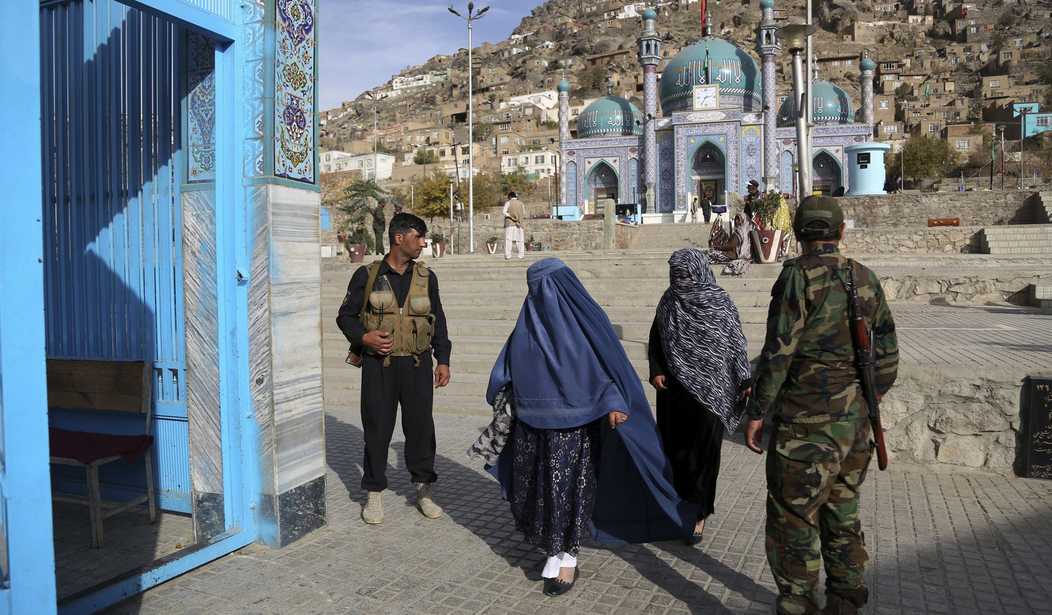A potential deal with the Taliban—which would end U.S. involvement in the Afghanistan War in exchange for counterterrorism assurances, a ceasefire, and an intra-Afghan dialogue—reportedly is nearly complete. But President Trump’s comments on Sunday, after a meeting with his national security team to discuss the proposal, suggest an American exit is not actually imminent—Trump said Afghanistan can’t be a “laboratory for terror,” that the future of U.S. involvement will “depend on the Taliban [and] the Afghan government,” and that we should expect to see “significant” intelligence capabilities left behind as a “police force”—indefinitely. Much as with Trump’s 2017 decision to expand the war with a “conditions-based approach,” it seems that even a signed deal with the Taliban would simply mean a continuation of a status quo-lite arrangement under a different name.
Though a political settlement in Afghanistan is desirable, realistically it remains unlikely in the near term. Fortunately, it is not essential for U.S. security. The United States can and should simply leave just as quickly as we arrived nearly 18 years ago. We don’t need to be a police force in Afghanistan, nor do we require an agreement with the Taliban to keep Americans safe.
Though more and more politicians are admitting that this war needs to be brought to a close, fears of terrorism reminiscent of the 9/11 attacks have kept the push for withdrawal from gaining enough momentum to be decisive. Trump’s comment about laboratories for terrorism speaks to this fear.
It is misguided, though. Terror groups do not need a base of operations to plan and carry out large-scale attacks. As the Cato Institute’s John Glaser and John Mueller have noted, attacks in Madrid in 2004, London in 2005, Paris in 2015, and Brussels and Istanbul in 2016 show terrorists are able to wreak havoc without a base of operations. The attacks on the World Trade Center and Washington, D.C. in 2001 were planned from multiple points across the globe, including within the United States.
And just as terror groups don’t need a safe haven to plan and carry out attacks, neither does the United States need a permanent military presence in any country to prevent them. We have the capability to monitor anti-American activity from afar, and we can disrupt plots using the traditional tools of intelligence and police work. If that fails, and local and regional actors find themselves unable to deal with a specific terror threat, we retain the option for a limited strike or raid to neutralize it.
Recommended
Part of the proposed agreement with the Taliban reportedly would see the withdrawal of several thousand U.S. forces in exchange for Taliban assurances that they will renounce al-Qaida and ISIS-K. But a formal agreement in this realm, while nice on paper, is unnecessary.
The example of the U.S. onslaught after 9/11 shows beyond a shadow of a doubt that any attack against Americans planned from Afghanistan will result in an overwhelming military response. As my Defense Priorities colleague Gil Barndollar writes: “It is this threat and its credibility—deterrence by punishment, not negotiated promises—that discourages the Taliban from ever again supporting transnational jihadist terrorism.” While our ability to build nations from scratch is seriously lacking, our deterrence capability remains the greatest in the world.
Furthermore, tying any eventual withdrawal of U.S. troops to a political settlement between the Afghan government and the Taliban, as Trump’s comments seem to suggest, is foolhardy, as even if both actors get to the negotiating table—and that is a big “if”—as their negotiations are likely to take quite a long time. U.S. forces should not beholden to that timeline, nor should they be the bargaining chips in a political negotiation between two sides of a foreign civil war, especially when the opposing sides have such a significant conflict of vision.
With his comments Sunday, Trump signaled he is poised to break one of his best and most important campaign promises. In his most recent State of the Union address, he said that great nations don’t fight endless wars. But greatness is about prioritizing American interests and security. Both of which can be served without this deal.
Jerrod A. Laber is a fellow at Defense Priorities, and a foreign policy fellow and senior contributor for Young Voices. Follow him on Twitter @JerrodALaber.

























Join the conversation as a VIP Member